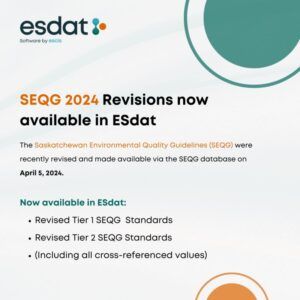Are you concerned about the environment and its protection in Australia?
Discover all you need to know about the National Environment Protection Council (NEPC) – The official regulatory body that ensures enhanced protection of the environment at a national level.
Introduction to the National Environment Protection Council (NEPC)
The National Environment Protection Council (NEPC) is a statutory body established in 1995 under the Environment Protection and Biodiversity Conservation Act 1999 (EPBC Act). Its role is to provide national direction, guidance and coordination on environmental protection, pollution prevention and conservation of natural resources in Australia. The NEPC comprises representatives from all Australian governments: the Commonwealth, States and Territories. The NEPC reviews legal instruments such as the National Environment Protection Measures (NEPMs), which are enforceable standards that set out how each State and Territory should control certain activities, substances or aspects of the environment.
The work of the NEPC includes consulting with industry, community groups and environmental organisations to find solutions for environmental issues; recommending changes to legislation or regulations; providing training opportunities and other educational materials; monitoring programs; coordinating research projects; coordinating emergency response strategies; conducting public awareness campaigns; and assisting with compliance activities. All levels of government must come together to protect our environment for future generations.
Overview of the NEPC’s Role in Australia
The National Environment Protection Council (NEPC) is responsible for developing and maintaining the national environment protection measures (NEPMs) system that protects, restores and enhances Australia’s environmental assets. The NEPC also sets guidelines for industry to ensure environmental best practices and proper control of emissions, wastes and other environmental pollutants.
The NEPC is an intergovernmental body chaired by the Federal Minister for Environment Protection. It is comprised of representatives from all states and territories in Australia, as well as significant Commonwealth departments such as the Department of Agriculture and Water Resources; Department of Industry; Department of Health; Office of the Australian Information Commissioner; Environmental Protection Agency; Bureau of Meteorology; Australian Institute of Marine Science and more.
The NEPC was established under part 5A section 46(1) of the Environment Protection (Impact Assessment and Emergency Preparedness Commission) Act 1999 to facilitate cooperation between all government, industry and community levels towards achieving better policymaking outcomes around natural resources management. The NEPM provides a mechanism for sharing information and coordinating approaches to reduce red tape between states, territories, local governments and primary industries. The NEPC seeks to work collaboratively with stakeholders to ensure that environmental protection measures are cost-effective while achieving their objectives.
The History of the NEPC
The National Environment Protection Council (NEPC) was established in 1996 as an Australian government intergovernmental forum to protect, manage and conserve the environment. It was created following the passing of the National Environment Protection Act (EPA) in 1995. It committed Australia to adopt national standards on air and water quality, hazardous waste management and environmental impact assessments.
The NEPC was initially made up of representatives from each state and territory government and a small number of Indigenous representatives. Each had expertise in various areas related to the environment, including climate change, land use planning, resource management and environmental auditing. Over time, its membership expanded to include companies and community groups seeking environmental recognition.
The NEPC has since evolved into an essential instrument for managing national environmental policies in Australia. As well as developing core principles on improving natural resources across Australia, it also promotes cooperative action between governments, businesses and communities to improve their environmental performance by setting standards for environmental impact assessments, hazardous waste management systems, regulation of chemicals used in industry etc., through formal agreements such as National Environmental Standards (NES). Through these agreements, NES sets standards for air quality control measures that are applicable nationally but also allows states/territories to set additional standards explicitly tailored to local circumstances if deemed necessary.
The NEPC boasts a long record of success – such as bringing landscapes around Sydney Harbour from low bushland standing areas to elevated public parklands – with many more projects currently underway that strive for further sustainability objectives throughout Australia’s ecosystems.
The NEPC’s Powers and Responsibilities
The National Environment Protection Council (NEPC) is an independent statutory body in Australia which develops and implements National Environment Protection Measures (NEPMs) to protect the environment. The NEPC has wide-ranging powers and responsibilities, including setting national pollution standards, determining environmental assessment requirements for high-impact developments, encouraging best-practice environmental management and promoting research into environmental issues.
As part of its mandate, the NEPC advises the Australian government on matters concerning national environmental protection and works in consultation with relevant state, territory and local governments. It also coordinates activities amongst other relevant environmental protection bodies, such as peak industry bodies.
The NEPC is responsible for developing outcomes-based standards for pollution by setting emission regulations that promote best practices in air quality management, groundwater control and hazardous substances management across Australia. It collaborates with state and territory governments to ensure consistent plans for resource extraction in coastal zones and cross-border protections on water use. The NEPC also assesses potential development applications that could significantly impact the environment or public health.
The NEPC provides technical advice to key stakeholders and financial support through grants and funding schemes to help local communities improve their environmental sustainability efforts. It works with a range of partners, including industry groups, to develop risk assessments that aim to identify any potentially hazardous chemicals or pollutants, control measures against them, related attitudes or behaviour changes needed within industries using these chemicals or contaminants, or potential new technologies needed within industries using those pollutants or chemicals. Finally, it fosters collaborations among experts from different scientific fields working on national environmental protection projects both nationally and regionally.
The NEPC’s Impact on Environmental Protection
Australia’s National Environment Protection Council (NEPC) was set up in 1997 to promote a consistent national approach to protecting the environment. The NEPC aims to establish environmental protection objectives, standards and monitoring protocols applicable nationally.
Its responsibilities include:
- Developing environmental protection policies and guidelines;
- Creating and regulating environmental management plans;
- Advising governments on effective governance of environmental issues;
- Monitoring human impacts on the environment;
- Reporting on changes in Australia’s environment; and
- Developing strategies for reducing waste, pollution and greenhouse gas emissions.
The NEPC had also established precedents for dealing with significant contamination events that threatened the environment’s health, such as acting swiftly when an oil spill occurred near Townsville in 2018. It works with all levels of government to ensure that adequate resources are dedicated to enforcing laws protecting flora, fauna and other natural resources.
Overall, the NEPC plays a vital role in helping implement uniform measures across Australia to protect our delicate ecosystems. It works with relevant stakeholders and experts from ecology, conservation, economics and engineering to create policies based on sound science that act as benchmarks for national environmental management practices.
The NEPC’s Relationship with Other Environmental Protection Agencies
The National Environment Protection Council (NEPC) is Australia’s main environmental protection agency and is responsible for coordinating the various state and federal agencies involved in environmental protection. The NEPC has successfully developed national standards and regulations used by other states and agencies.
The NEPC works with many other organisations, including state governments, local authorities, universities, industry groups and non-governmental organisations, to promote better environmental management. Collaborating on these projects helps develop a holistic approach to dealing with Australia’s complex environmental issues.
The NEPC also works with interstate counterparts to ensure the consistent implementation of its standards across the country. It encourages an interplay between legislation developed by different states while determining areas of common interest that can provide benefits throughout Australia. The NEPC also works towards creating a unified approach to protecting Australia’s environment through its work with overseas bodies such as United Nations agencies, OECD countries and other international organisations.
Finally, the Council engages in ongoing dialogue with other national environment protection councils worldwide on issues of mutual interest. This allows for ideas to be shared about best practices for managing specific environmental problems to support each others’ efforts towards achieving excellence in environmental management at all levels throughout Australia.
The Future of the NEPC
The National Environment Protection Council (NEPC) is a statutory body established in 1996 by the Australia Government to improve and harmonise how national environmental standards are developed, and actions to protect the environment are implemented across all sectors of the economy. The objectives of the Council include:
- Setting national standards for the protection of the environment.
- Providing a forum to discuss and make decisions on these standards.
- Creating principles to guide decision-makers on desired outcomes.
- Encouraging partnerships between public and private sector stakeholders.
- Implementing initiatives that foster sustainability.
As part of its ongoing efforts to ensure a healthy environment for all Australians, the NEPC is currently exploring ways to strengthen its integrated approach further. This includes plans to review their existing suite of National Environment Protection Measures (NEPMs) that provide direction on how governments should manage risks associated with human activities – such as mining operations or waste management programs – to remain within acceptable limits. To help meet these goals, the Council will also consider options for strengthening pollution prevention activities at all levels, from fields to factories, through targeted legislation, more stringent monitoring systems and support for cleaner production practices. Additionally, NEPC will continue actively engaging with state jurisdictions regarding issues related to water quality management initiatives.
By taking an integrated approach and recognising its role as an important independent voice in environmental policymaking in Australia, NEPC hopes to create an effective system capable of more sustainable outcomes for all Australians in the future.
A great resource for finding Pre-compiled Australian environmental guidelines and standards is now available.

Conclusion
The National Environment Protection Council (NEPC) in Australia is the highest environmental standards-setting body in the country. The NEPC is responsible for creating national environmental quality and pollution standards applicable to all Commonwealth Government agencies, State and Territory governments, and large industrial and commercial water users.
In addition, the NEPC also plays a crucial role in driving improved national consistency on key environmental issues, including waste management, hazardous chemicals and materials management, climate change actions, water resource arrangements and more. Through this role, the NEPC protects public health and the environment and maximises economic opportunities for Australians.
The NEPC has a statutory obligation to set the level of standards necessary to protect public health from any identified environmental hazard over a period of time – often referred to as ‘environmental objectives’. These objectives must be consistent with current relevant technical information or knowledge and strategies developed by relevant industries or stakeholders. Once the government finalises these objectives become binding on all agencies subject to their jurisdiction.
Related Articles to Australian Environmental Standards
Australian Environmental Standards: laws that protect the environment in Australia.
What are the Water Quality Standards in Australia?
What are Australian Drinking Water Guidelines (ADWG)?
Waste Management & Waste Classification Guidelines in Victoria, Australia.
Guidelines for Managing Risk in Recreational Water 2008 in Australia
What are Default Guideline Values (DGVs) For Toxicants When Assessing Water Quality?
What are the NSW Excavated Natural Material guidelines?
What is the aim of the SA Environmental Protection Water Quality policy?







[…] What is the National Environment Protection Council NEPC in Australia? […]
[…] What is the National Environment Protection Council NEPC in Australia? […]